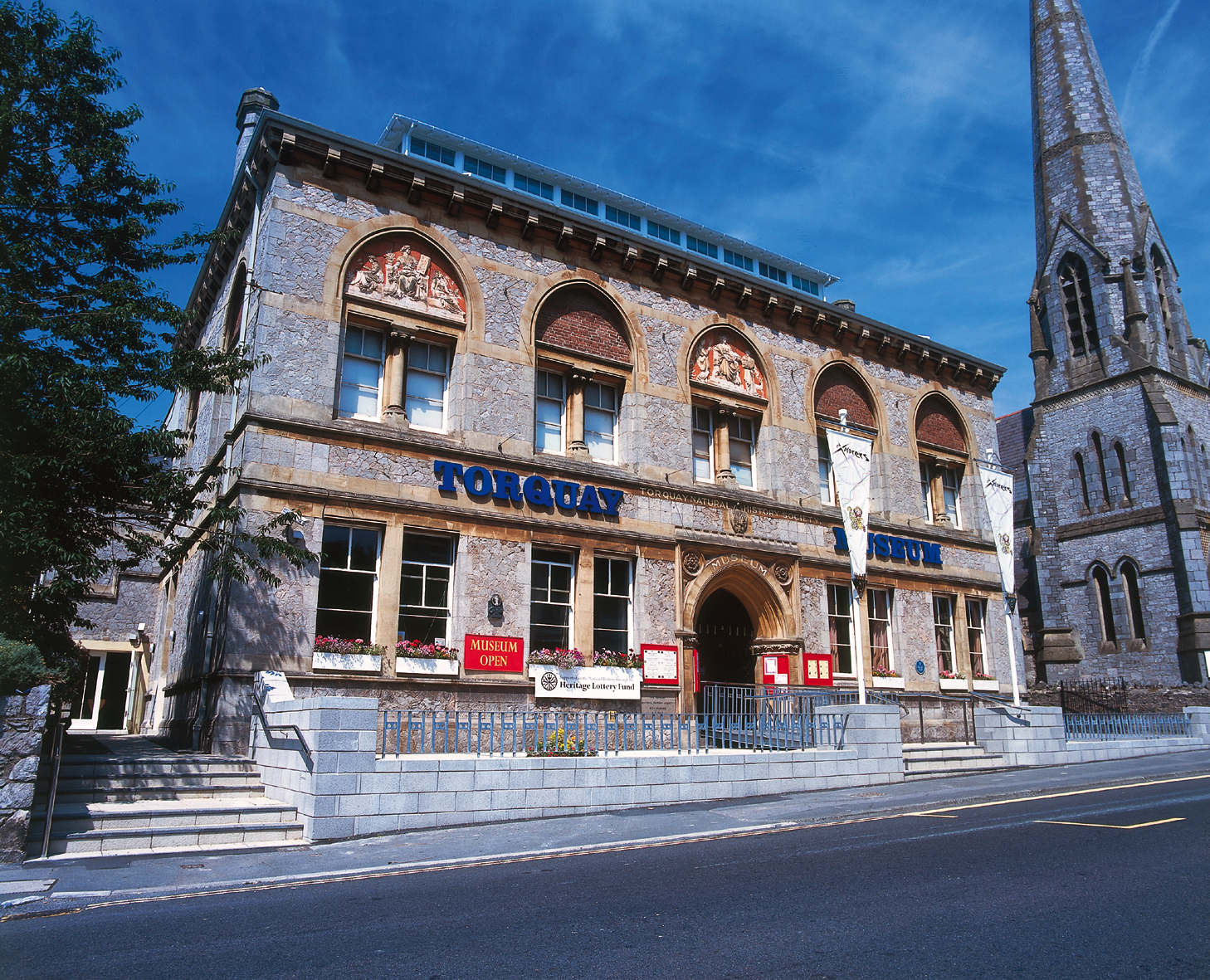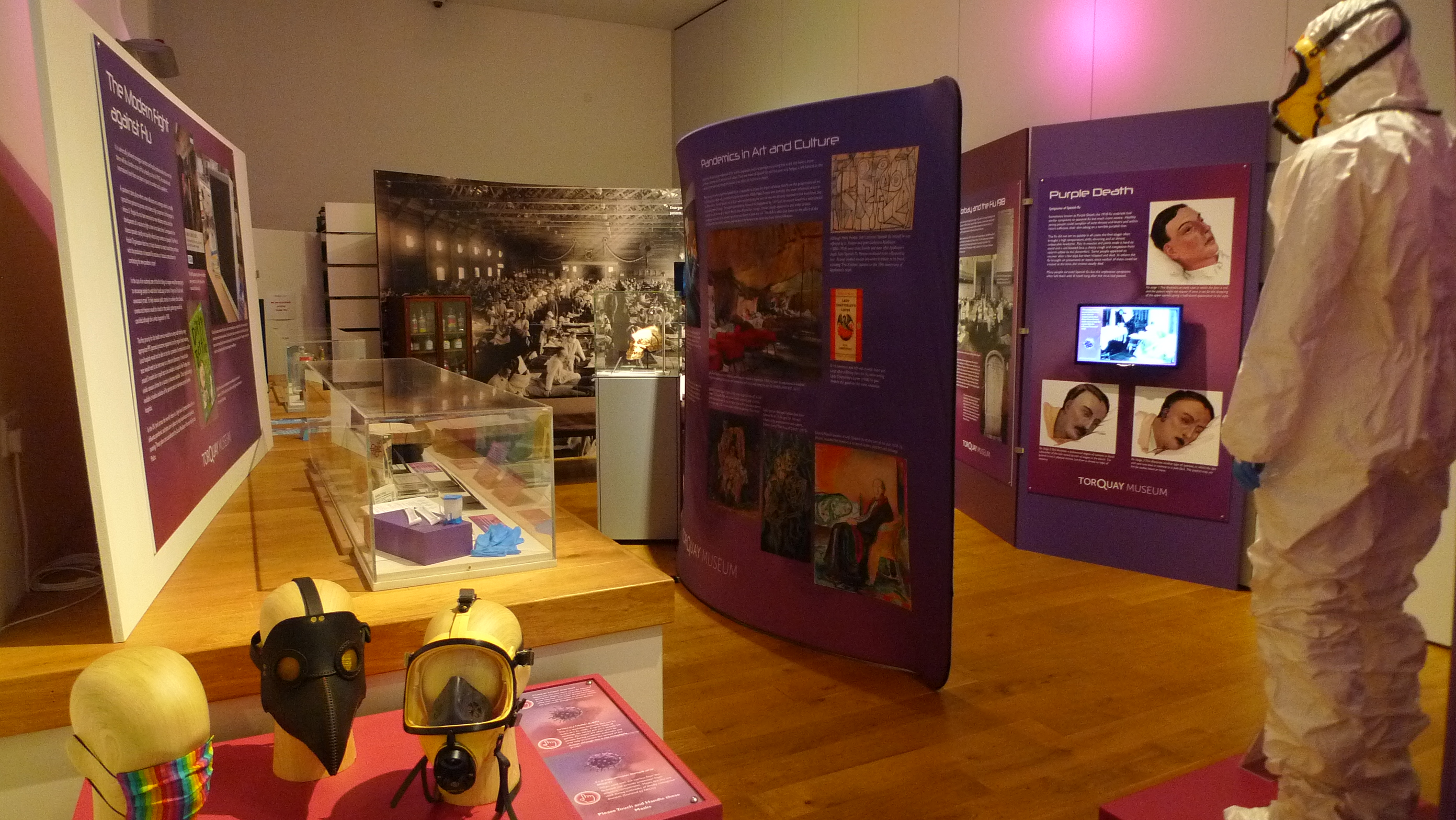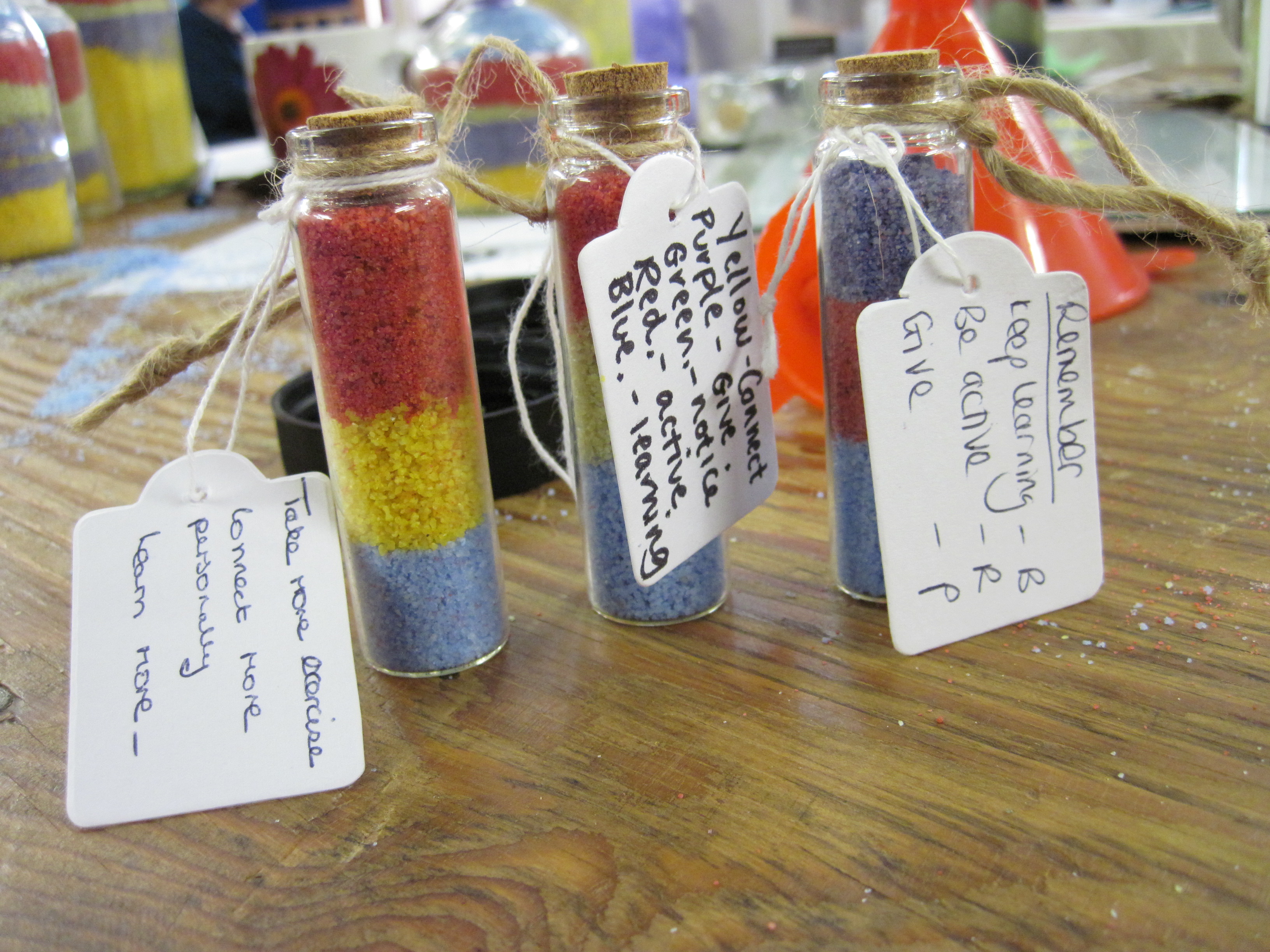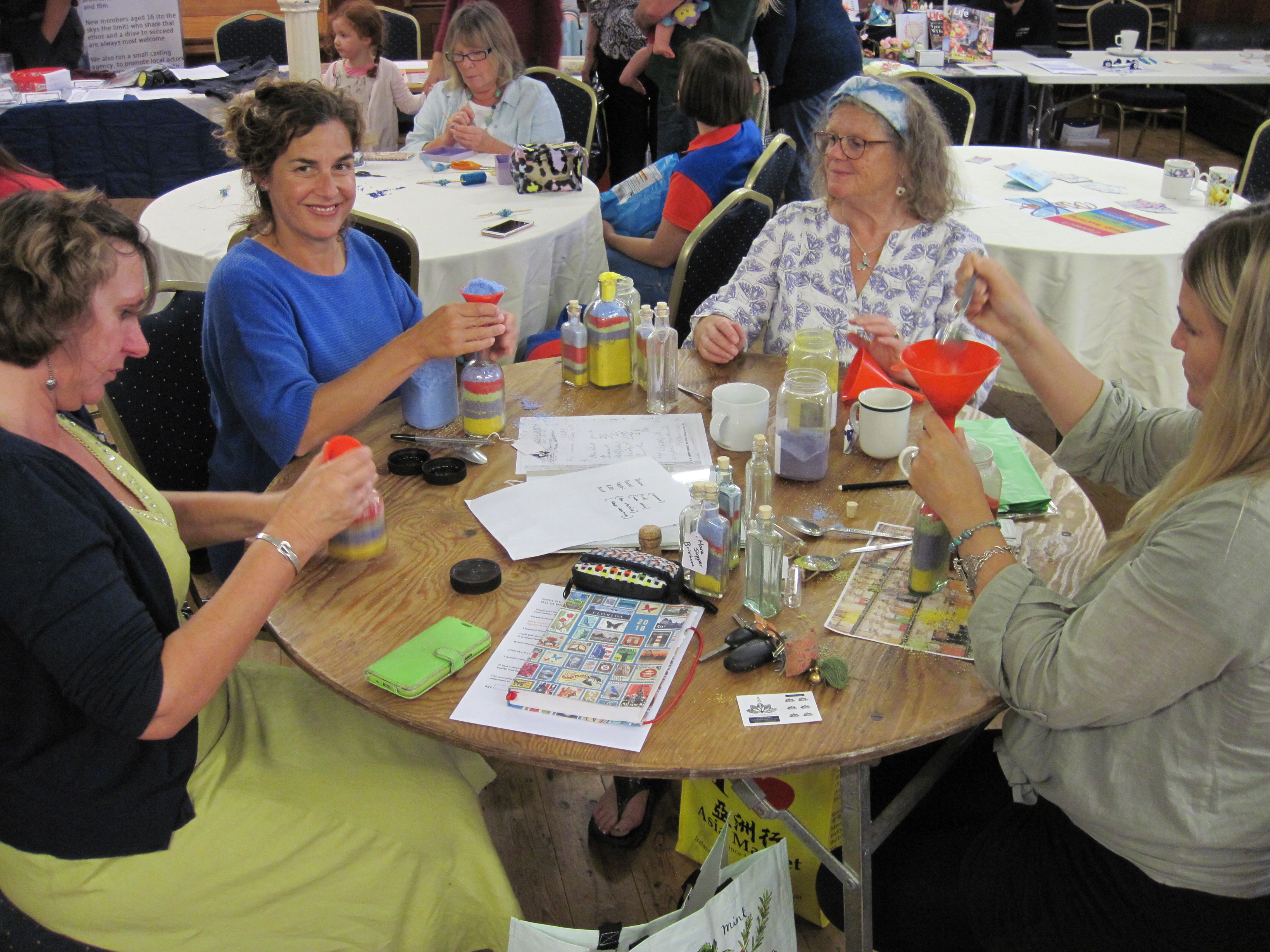
Image: Torquay Museum Exterior
Project Overview
The main component of this project is an exhibition on the Spanish Flu pandemic of 1918-1920 at Torquay Museum, Devon, UK. The exhibition will run throughout the UK flu season (when the illness is most prevalent - October-February) of 2018/19.
The project commemorates 100 years since the onset of the Spanish Flu pandemic, which killed more people worldwide than both world wars. The exhibition featured local stories about the flu and offered visitors the opportunity to learn more about how flu spreads, why it can be so deadly and future threats from the illness.
Image: Torquay Museum
Project leads & partners
The project is lead by Torquay Museum, in the South West of England. The museum partnered with Squircle Arts and Shelley Castle, an artist, to run the engagement activities associated with the exhibition. Squircle arts carried out engagement activities with school groups in the museum space, and are looking to run activities in schools as the project progresses. They were chosen due to previous experience connecting with hard-to-reach groups by making information accessible, fun and engaging. Shelley Castle is an experienced artist who was worked for years with disengaged groups in the local area. Shelley’s work in the exhibition focused on wellbeing and how to ‘stay well’.
Activities
A number of engagement activities both informed the exhibition and were built around its launch. This included schools visits and outreach to elderly community members, run by Squircle Arts. This group also ran a young person’s film workshop. An advert was sent out to local schools and youth groups, with respondees taking part in the workshop. The young people involved were given a brief to produce a film on Spanish Flu, but had freedom over what to include, and co-ordinated the presenting, filming etc themselves. The resulting film features in the exhibition and in the schools engagement programmes - click here to watch it (please note, this opens a Facebook link).
Image: The Wellbeing Sands | Torquay Museum
Shelley Castle created an art installation with members of the local community - a ‘wellbeing cabinet’ - which featured in the exhibition. The wellbeing cabinet was modelled to look like a Victorian medicine cabinet, with glass bottles filled with different coloured sand. Each colour represented a different component of wellbeing and health, including: ‘be active’; ‘give’; ‘keep learning’; ‘take notice’; and ‘connect’. Participants were invited to fill empty bottles with the different coloured sands, representing how important they feel each component is to maintaining their own health and wellbeing. Through conversations while creating this artwork, Shelley noted that people were very aware of their own place within their social and ecological environment, and how this affects their wellbeing.
Image: Torquay Museum
Evaluation and lessons learned
At the time of writing, the exhibition is still ongoing, so full evaluation has not been done. However exhibition attendees and community members involved in creating the exhibition have all been surveyed through the ‘Culture Counts’ system. Responses will therefore be fully assessed once the exhibition has closed.
More generally, the organisers have found that, while the diverse nature of the project was great, the number of different activities and strands of the project meant that it was, at times, difficult to keep track of everything and so some aspects of the project ended up with less time devoted to them than they should have had.
For example, initial plans involved running flu vaccination clinics in the museum as part of the engagement activities, but due to time constraints this could not be organised. In light of this, the organisers state the importance of ensuring a good amount of time for organisation if planning to work with the NHS. The organisers therefore noted the importance of focusing your aims and goals from the very beginning of the project.
The project lead also highlighted that high-quality and in-depth engagement with small groups felt most effective and they will be hoping to reproduce activities such as the filmmaking workshop with future projects.




Please Sign in (or Register) to view further.